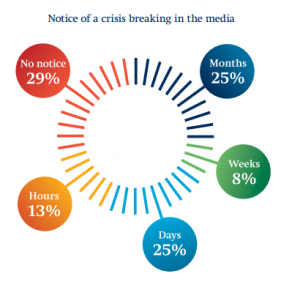The Caribbean tourism industry has been susceptible to a considerable amount of negative news in the last few months. Issues such as Sargassum, Zika, the “threat” of Cuba… all are making headlines. These are stories whose outcomes are completely out of our control, but how we steer the conversation with our guests and the media is within our grasp.
A successful media relations campaign can turn negative press into an opportunity to move the media and online conversation to talk about what is going right in the Caribbean back into focus. An effective response to negative news can minimize impact, and in some instances, the response can be so well received it can actually strengthen public perception.
Crisis Management in the Digital Age
 Digital communications have changed everything, and a new game requires new rules. The new principles of crisis management demand, above all, speed. This can be counter-intuitive to the hospitality executive that wants to meticulously draft an intelligent and well researched response.
Digital communications have changed everything, and a new game requires new rules. The new principles of crisis management demand, above all, speed. This can be counter-intuitive to the hospitality executive that wants to meticulously draft an intelligent and well researched response.
More than one-quarter of crisis spread to international media within an hour and over two-thirds within 24 hours. Despite the fact that 6 out of 10 cases were provided with days if not months of notice, it still takes an average of 21 hours for companies to respond, leaving them open to “trial by Twitter”. Immediate communication on multiple channels to multiple audiences in real time is the new standard.
Crises can be, by their nature, unexpected. However, 25% of crisis situations do not reach the media until months after according to Freshfields Bruckhaus Deringer’s Containing a Crisis study. This means companies then have enough warning time to plan before the issue becomes public and also have some time to refine their messages before the public becomes concerned.
Before the Crisis
- Listen – Set up mechanisms to monitor traditional and online media. Set Google Alerts for your company and your industry. Have social media software setup to listen and monitor online conversations. Also be clear on what should be considered a crisis and what is simply a customer service issue.
- Plan – Pre-plan messages for “standard” crisis (hurricanes, for example) and determine a response protocol. This plan should be in writing, updated regularly, and distributed to the appropriate individuals for effective execution. It needs to identify who the response personnel is, their role and their contact information. Other steps include adding information to your company website and coordinating the release of all information across distribution points.
During the Crisis
- Acknowledge the issue – do this immediately, even if you have little additional information at the time.
- Respond where the crisis breaks – if it breaks on Twitter, respond on Twitter. This is why it is imperative to have an established social media presence on all outposts, even if they are not routinely used.
- Be Sorry – Even in the face of a hurricane or natural disaster, apologize to your guests for their vacation being delayed or canceled.
- Create an Emergency Management FAQ on your website and link people from your social media to this page. Also enable a subscription to your FAQ – allow people to sign up to receive an update email when the FAQ page has been updated.
- Take negative comments offline – encourage vehement critics to email or call you.
- Inform ALL employees on how to respond – regardless of “official” channels, customers will reach out to the employee closest to them. Empower them with the right information to respond in an intelligent way.
Speaking to Journalists
A key part of any effective crisis communications plan is to have an appropriate spokesperson prepared to handle a journalist who will dig, probe and try to knock you off your key message. When communicating with a journalist during a crisis situation there a few things to remember.
- Do not speculate. Only speak to what you know. If you do not know the answer to a question, tell the reporter that you will need to call them back with that information. Reporters are looking to deliver stories that are based on facts.
- If during a conversation or interview a reporter makes a mistake regarding the facts, correct them. If not corrected their error could be perceived as fact.
- There is no such thing as “off the record”.
- “No Comment” is not an appropriate response. It conjures up images of someone trying to hide something, and leaves the impression you are not being completely honest.